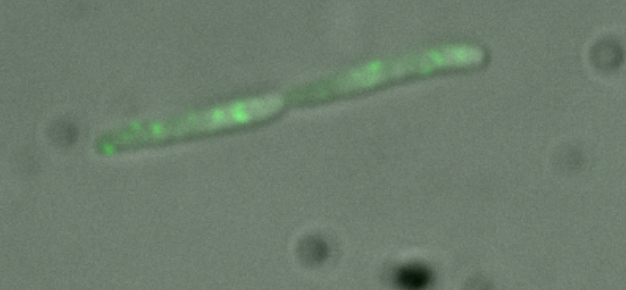Virginia Tech/phage
From 2007.igem.org
(Difference between revisions)
BlairLyons (Talk | contribs) m |
BlairLyons (Talk | contribs) m |
||
| Line 76: | Line 76: | ||
λ phage is the viral component in our biological system that we used to test our model. We chose λ phage because it has been characterized and studied for decades. λ phage is also very stable and relatively easy to work with. We had a lot to learn since no one on the team had ever worked with λ phage before. | λ phage is the viral component in our biological system that we used to test our model. We chose λ phage because it has been characterized and studied for decades. λ phage is also very stable and relatively easy to work with. We had a lot to learn since no one on the team had ever worked with λ phage before. | ||
| - | + | At the beginning of the summer, we received fluorescent λ phage from the Laboratoire de Physique Statistique, Ecole Normale Supérieure, Paris, France. The phage was provided by Phillippe Thomen and is characterized in <html><a href="https://static.igem.org/mediawiki/2007/3/32/Alvarez_2007.pdf">"Propagation of fluorescent viruses in growing plaques"</a></html> by Alvarez, L. J., P. Thomen, et al. Using this phage we were able to observe the build-up of viral particles in a lytic cell. | |
Revision as of 23:25, 24 October 2007
|
|
Bacteriophage λλ phage is the viral component in our biological system that we used to test our model. We chose λ phage because it has been characterized and studied for decades. λ phage is also very stable and relatively easy to work with. We had a lot to learn since no one on the team had ever worked with λ phage before. At the beginning of the summer, we received fluorescent λ phage from the Laboratoire de Physique Statistique, Ecole Normale Supérieure, Paris, France. The phage was provided by Phillippe Thomen and is characterized in "Propagation of fluorescent viruses in growing plaques" by Alvarez, L. J., P. Thomen, et al. Using this phage we were able to observe the build-up of viral particles in a lytic cell.
|








